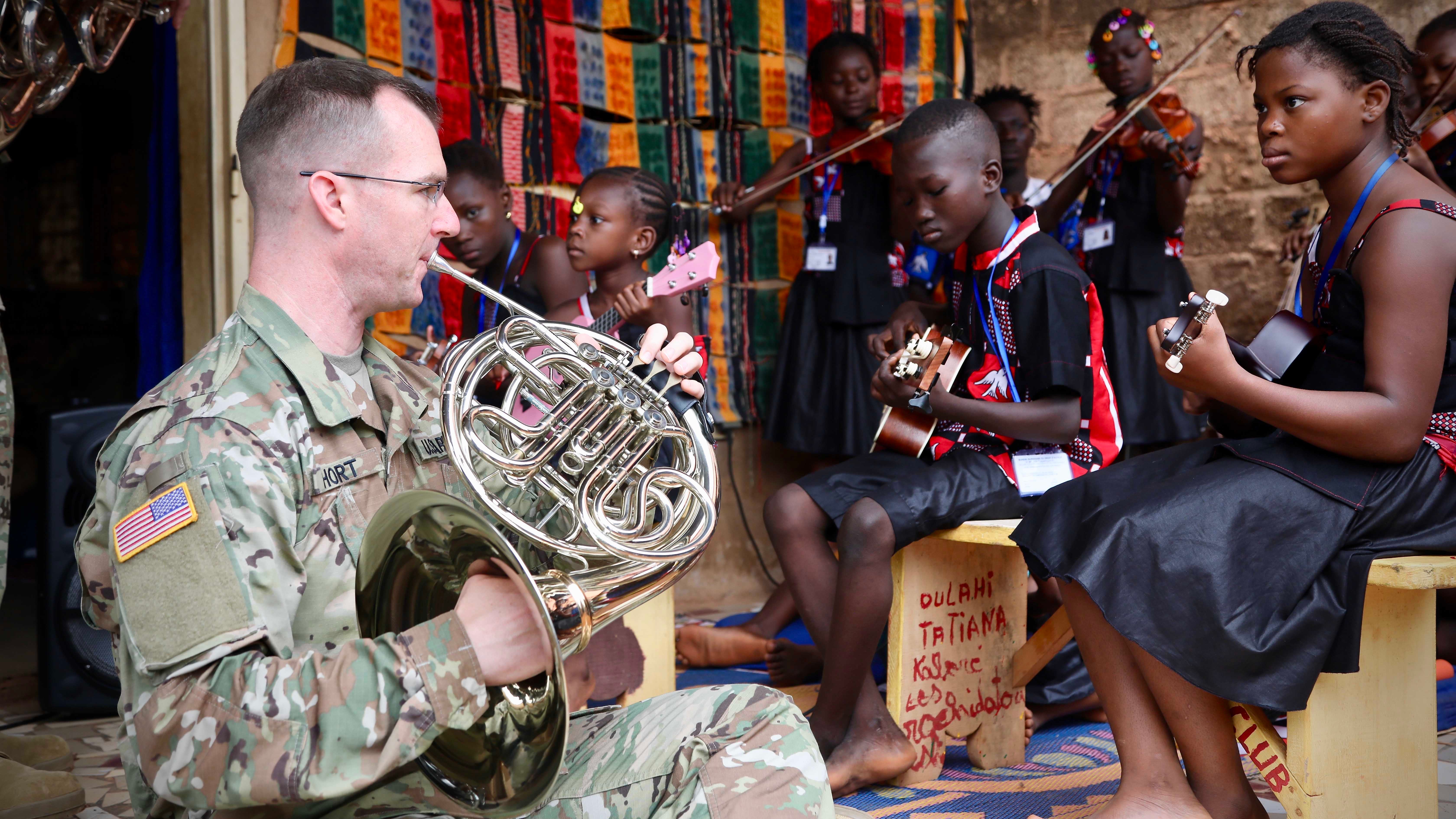Music Plays Unique Role in Army Mission at Home, Abroad
Music Plays Unique Role in Army Mission at Home, Abroad

Much like the practice of national defense, music can have significant psychological impact, cultural identity and historical implications.
And, according to a new paper by the Association of the U.S. Army, it continues to play an important role in the Army.
Relying on a study by the Army Music Analytics Team and the West Point Music Research center, author Sgt. 1st Class Joseph Hart Jr. looks at the impact military bands have on the military’s effectiveness in communication and technology, and whether they’re worth the investment.
“Music is ... a language understood by nearly all people, either rhythmically, harmonically or melodically,” Hart wrote in his paper, “Keeping Peace with a Different Drum: A Note on Military Music.”
“It is a bridge of communication that transcends etymological barriers and has the power to build and unite a nation or tear down cultural identities,” he says.
According to the author, musicians are not only artists but also “linguists capable of reading, writing and speaking a language universally comprehended”—and military musicians take it one step further.
“They honor the traditions and heritage passed down from generation to generation, and, in the case of the West Point Band, from one of the founding fathers,” Hart wrote.
The “idea of music” in practice and performance, he says, is similar to the demands of Army leadership in that it’s “thoughtful, deliberate, meticulous, consciously aware of planning and preparation.”
Military bands can serve as “catalysts” for gathering human intelligence, performing psychological operations, creating “shared experiences,” and helping the military present itself in casual and friendly situations—possibly helping with recruiting, Hart says.
Read the full paper here.

